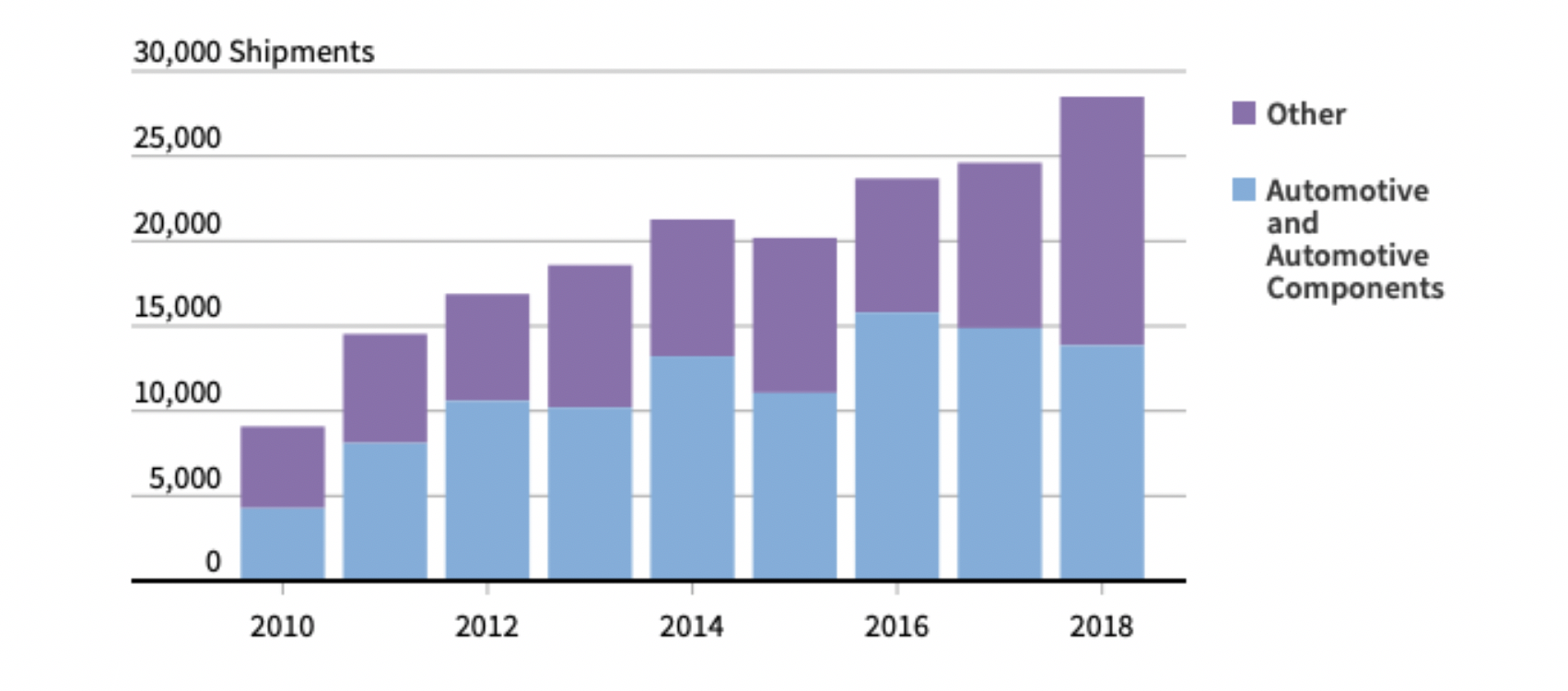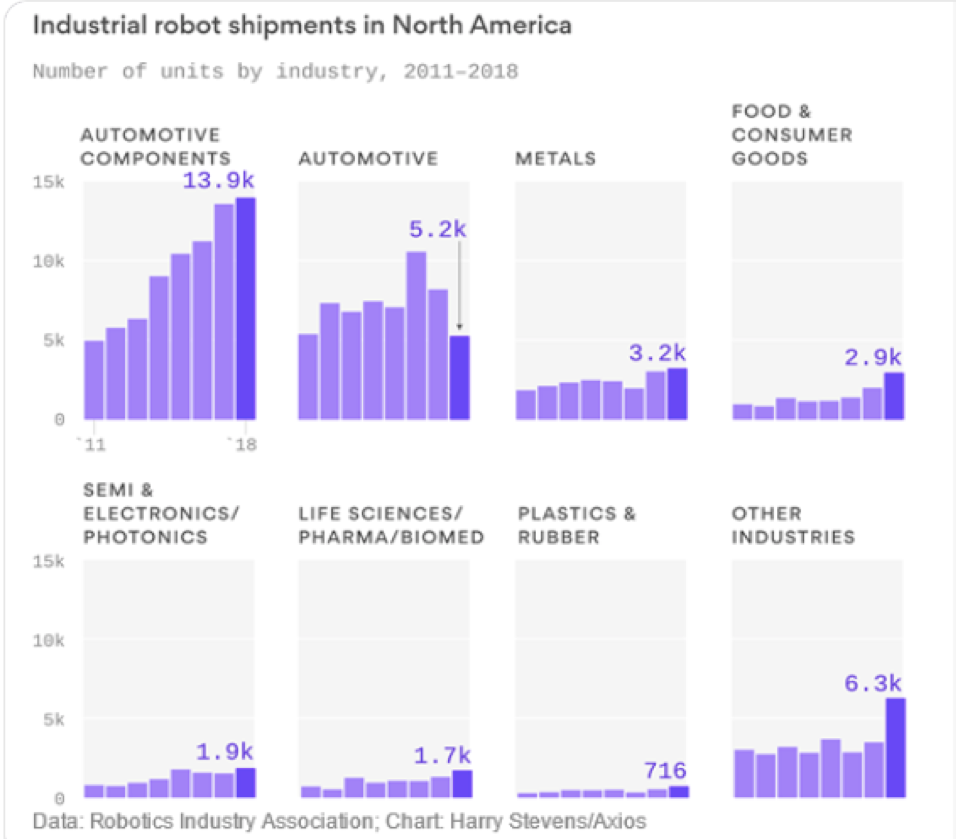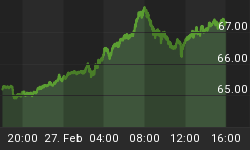The latest report from the Robotic Industries Association (RIA) has just come out, and it shows that robots are taking over a record number of U.S. jobs and that 35,880 robots were shipped to the U.S., Canada and Mexico in 2018--up 7 percent from the previous year.
Of those shipments, 16,702 were to non-automotive companies — a year-on-year increase of 41 percent. Generally, across all sectors combined, in the U.S. alone, shipments of robot freight increased by more than 15 percent.
"While the automotive industry has always led the way in implementing robotics here in North America, we are quite pleased to see other industries continuing to realize the benefits of automation, ” said Jeff Burnstein, President of the Association for Advancing Automation (A3).
Year-on-year, this is the data that sticks out from the RIA report: Sales and shipments of robots for 2018 didn’t just go to the big dogs—they also went to small- and medium-sized companies. Even they are getting automated.

(Click to enlarge)
Source: Reuters
Most notably, shipments of robots to food and consumer goods companies saw a 60-percent spike over the previous year, while shipments to semiconductor and electronics plants were up over 50 percent, and cargoes of robots going to metals producers rose 13 percent. The automotive industry actually saw a decline in the number of robots purchased, with shipments to U.S. carmakers down by 30 percent year-on-year.

(Click to enlarge)
The data shows that there is really no sector untouched by the robot phenomenon. Automation is being realized across the board because robots are getting cheaper, better and more versatile, according to Rob Atkinson, president of the Information Technology and Innovation Foundation, as reported by Axios. Related: The Best Way To Play The 5G Revolution
So what about those American jobs? We’re already past the inevitable with robots—from here on out, automation is getting heavy-handed.
In the World Economic Forum’s "Future of Jobs" (2018) report, businesses are cautioned to take care to recognize human capital investment as an asset rather than a liability. The trick is finding the balance between human capital and robot capital. If played right, we can have the best of both worlds.
"New technology adoption drives business growth, new job creation and augmentation of existing jobs, provided it can fully leverage the talents of a motivated and agile workforce who are equipped with futureproof skills," the WEF report said.
The International Labour Organization (ILO) is less sanguine. In its 2018 report, "Robots worldwide: The impact of automation on employment and trade", the ILO concludes that robotization in developed countries negatively affects employment in emerging countries.
"First, robots have a detrimental effect on employment growth at the global level, more than eleven times stronger in emerging economies than in developed economies. Second, the impact of robots on employment is not affected by the level of labor intensity in developed economies, while the evidence of such non-monotonic effects is mixed for emerging economies...", the ILO report notes.
By Damir Kaletovic for Safehaven.com
















